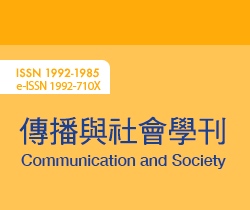數位平台的興起與普及,為新聞媒體帶來巨大的挑戰。獲取新聞的管道改變了,年輕世代幾乎完全仰賴數位平台獲取新聞,傳統新聞媒體的品牌價值在他們的認知中逐漸淡化。新聞內容開始多樣化,尤其新聞遊戲等嚴肅遊戲,嘗試讓閱聽人有體驗新聞事件的機會。解釋新聞的人也改變了,新聞網紅出現,不僅分享社會上發生的大大小小事件,還解釋這些事件的意義,扮演二級傳播理論所突顯的意見領袖角色。再加上數位平台瓜分了原本屬於新聞媒體的廣告收入,而數位訂閱模式的轉型始終成效有限。面對這些挑戰,新聞到底對閱聽人意味著甚麼?本期學刊有四篇專題論文檢視這項議題,另有兩篇研究論文則分別從數位科技的硬體與軟體角度探索人們的使用經驗。
四篇專題論文中,第一篇陳萱庭、羅海嬌與郭靖關注在社群媒體上接觸到政治新聞對新聞信任與新聞分享的影響,並以不文明接觸、不文明感知作為序列中介變項。結果發現新聞信任與新聞分享的影響機制不同。政治新聞接觸對新聞信任沒有直接影響,但單獨透過不文明接觸、或同時透過不文明接觸與感知皆有負面間接影響。政治新聞接觸對新聞分享有正面的直接效果,而透過不文明接觸、不文明感知兩個中介變項有負面間接影響,兩者反向運作。第二篇譚躍檢視獲取新聞的管道不同,是否會影響民眾的政治誤信(對錯誤訊息的相信程度),並進一步影響新聞分享。結果發現,傳統新聞媒體、政治人物會降低政治誤信,社群媒體增加政治誤信;通訊軟體、政論節目、新聞網紅直接提升新聞分享,而政治誤信並沒有中介效果。第三篇蕭煒霖與林日璇以雙平行中介模型,評估玩新聞遊戲的結果,是否透過享樂感與情緒效價兩個不同使用體驗影響利社會行為。結果發現,享樂感與情緒效價完全中介新聞遊戲遊玩結果對利社會行為的影響,體驗新聞事件扮演關鍵角色。第四篇馬鏡涵與李耘耕則採用固定樣本資料,發現傳統新聞媒體使用與政治信任之間的因果關係有世代差異,對年輕人來說是傳統媒體使用影響政治信任,而中年人則反過來是政治信任促成媒體使用。
至於兩篇研究論文,呂梓劍與郝春梅聚焦手機與無聊情緒之間的關係。透過訪談,揭示了技術性無聊雖代表著一種意義喪失,也蘊含著一種自反成分,幫助人們奪回時間主體,重建自我與時間的關係。宋思靜則思索女性玩家在多人線上遊戲透過化身體驗不同性別角色的遊戲樂趣和策略性的性別展演。
這六篇文章都關注存在已久的研究問題,但從一個全新的理論視角切入,為未來的發展開拓新的可能,值得一讀。
The rise and widespread use of digital platforms pose a huge challenge to news media. First, the way people access news has changed. Digital platforms, such as social media, have replaced legacy media and become the primary (or even only) source for news. Second, new news formats emerge. For instance, the development of interactive news games attempts not only to inform but also to engage audiences about news events. Third, news influencers substitute for news commentators to interpret the meaning and implication of news events, playing the role of opinion leaders suggested by the two-step theory. Finally, advertising revenue is being eaten up by digital platforms, but the much-desired digital subscription remains stagnant. What will be the potential solution for news media?
In response to these challenges, we present four special theme articles that examine the complex relationships between news, audiences, and digital platforms. The first paper, co-authored by Hsuan-Ting Chen, Haijiao Luo, and Jing Guo, investigates the effects of encountering political news on social media on news trust and engagement. The second article by Yue Tan explores whether different news access channels influence the public’s political misperception and its subsequent impact on misinformation sharing. Wei-Lin Hsiao and Tammy Jih-Hsuan Lin’s article employs a dual parallel mediation model to assess the impact of news games on prosocial behavior, examining the roles of enjoyment and emotional responses in this process. Jinghan Ma and Yungeng Li’s article utilizes panel data to reveal generational differences in the relationship between traditional news media use and political trust.
In addition, two research articles explore the user experiences of digital technologies. Zijian Lü and Chunmei Hao’s article focuses on the dynamics between mobile phone use and feelings of boredom, while Sijing Song’s article reflects on the enjoyment and strategic gender performance that female players experience in multiplayer online battle arena (MOBA) games through avatar
interactions.
All six articles in this issue demonstrate innovative approaches to longstanding research questions, exploring from novel theoretical perspectives and providing a thought-provoking reading experience.
本文引用格式:
陶振超(2025)。〈平台時代的數位新聞〉。《傳播與社會學刊》,第73 期,頁v–ix。
Citation of This Article:
Tao, C.-C. (2025). Digital news in the platform era. Communication and Society, 73, v–ix.
|
